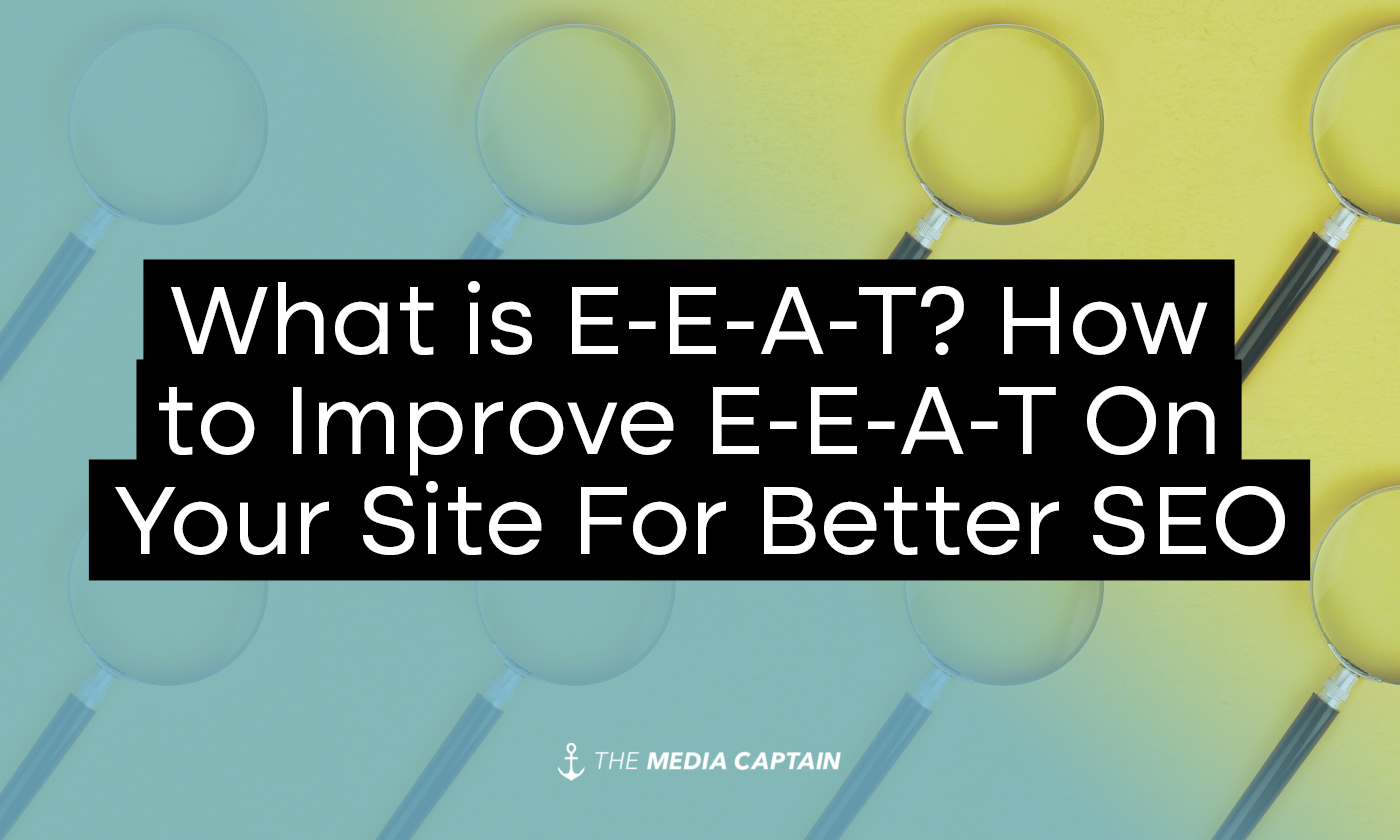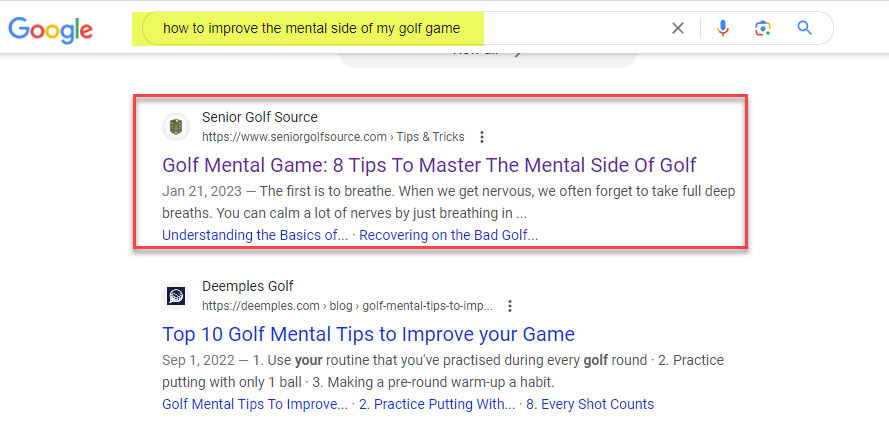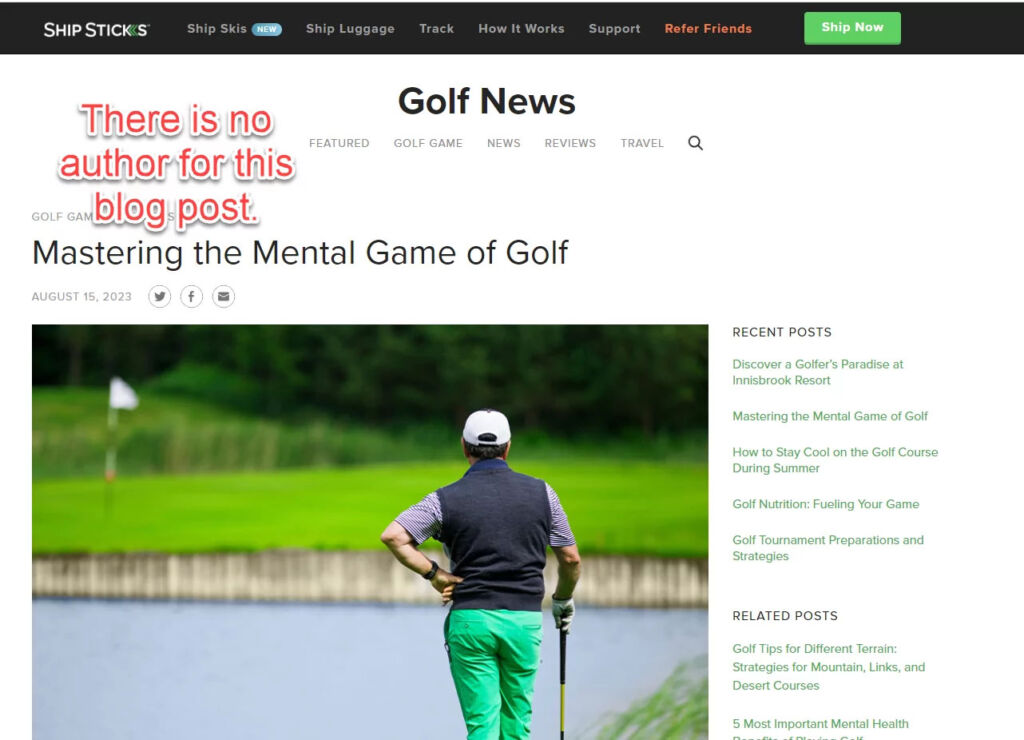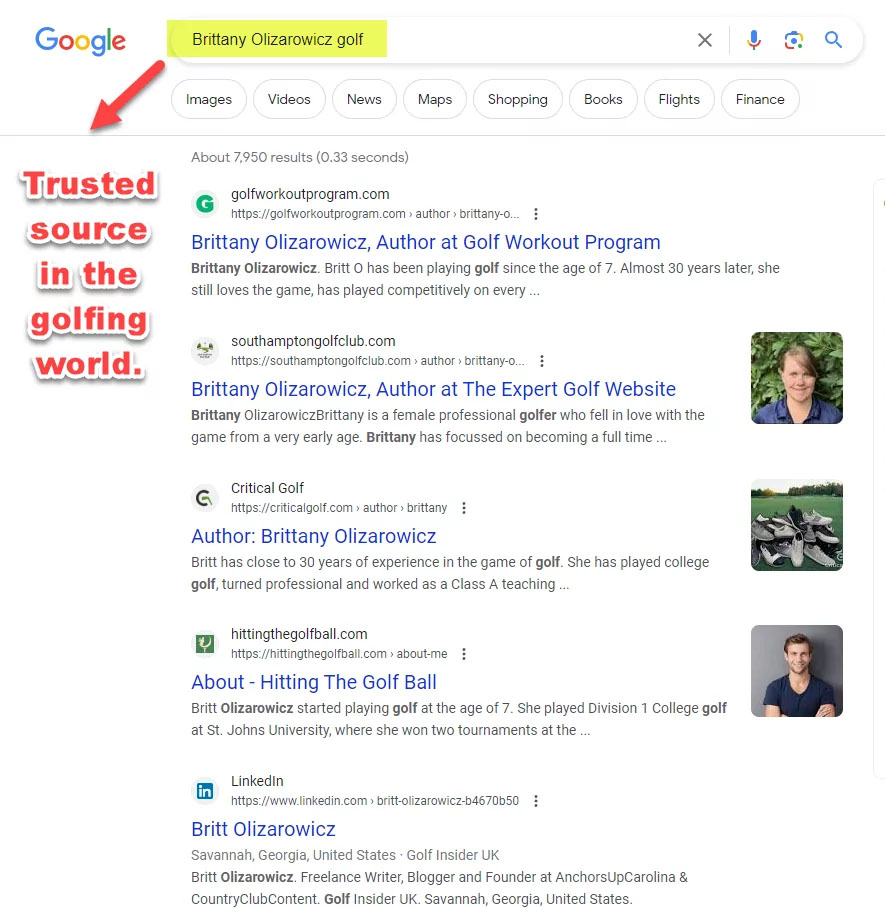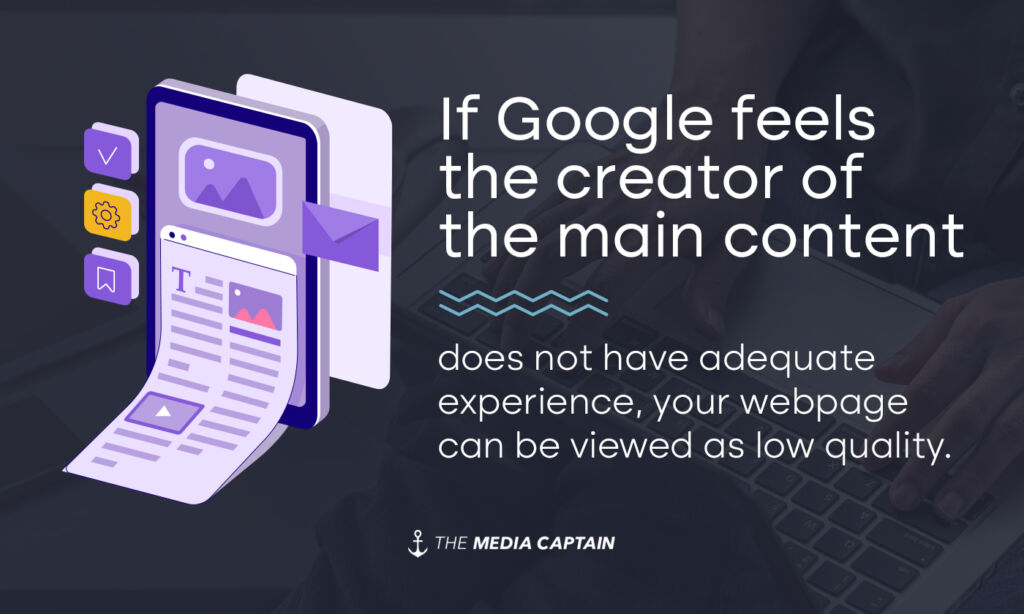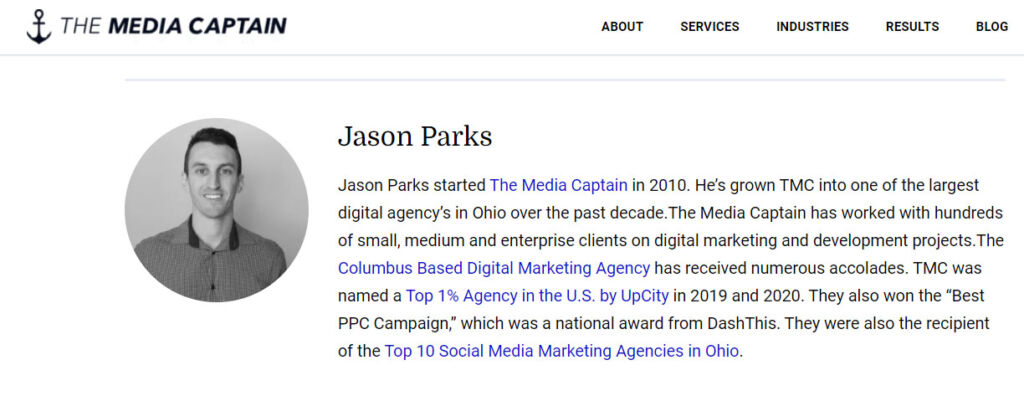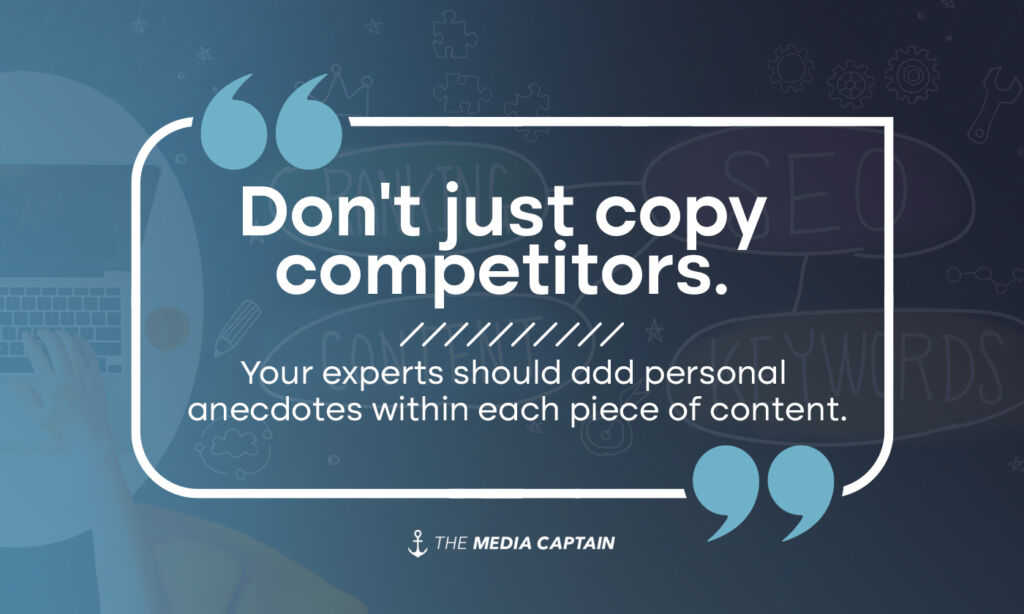What Is E-E-A-T?
E-E-A-T stands for experience, expertise, authoritativeness, and trustworthiness. There is great, detailed information on E-E-A-T from experts like Marie Haynes, Bruce Clay, and Lily Ray. This blog aims to explain E-E-A-T in layman’s terms to marketers and business owners. You don’t need to know each of Google’s algorithms since 2014, when they first introduced E-E-A-T, to understand how this evaluation method works and how it impacts your website. You will leave this article with a better understanding of E-E-A-T and action items to improve upon this on your own website.
- Google looks for E-E-A-T when evaluating the quality of a website.
- The first mention of E-A-T occurred in 2014 when Google added the concept to its Search Quality Guidelines [source].
- In 2022, Google added an extra “E” for the experience factor.
- Websites should demonstrate E-E-A-T so humans visiting their sites trust the content and information.
- E-E-A-T is a template for how Google rates individual sites. It’s used for every single query and search result.
- E-E-A-T does not directly impact rankings as an algorithm would. Instead, Google uses various signals in its algorithm to align with the concept of E-E-A-T.
- E-E-A-T is mostly determined via off-site links and mentions
- E-E-A-T is more important for YMYL (your money, your life queries) – such as looking for information to refinance a home or acne medication
- Google has search quality evaluators instructed to pay attention to E-E-A-T when evaluating websites. These are actual humans evaluating websites to gauge their legitimacy.
- Google wants to provide high-quality, accurate information to its users. Demonstrating E-E-A-T helps accomplish this.
Example To Better Understand E-E-A-T
Let me walk you through a website that was rewarded for strong E-E-A-T and one that missed the mark.
Looking For Credible Golf Article
I’m a mediocre golfer. It’s a hobby I enjoy playing with my dad and friends. I’m constantly seeking ways to improve my game to lower my handicap.
If I wanted to find information on Google on improving the mental aspect of my game, I would want this written by a golf professional, not a freelance writer who has never picked up a golf club.
After searching on Google for “How to Improve The Mental Side of My Golf Game,” I came across the article from Senior Golf Source on “8 Tips to Master the Mental Side of Golf.”
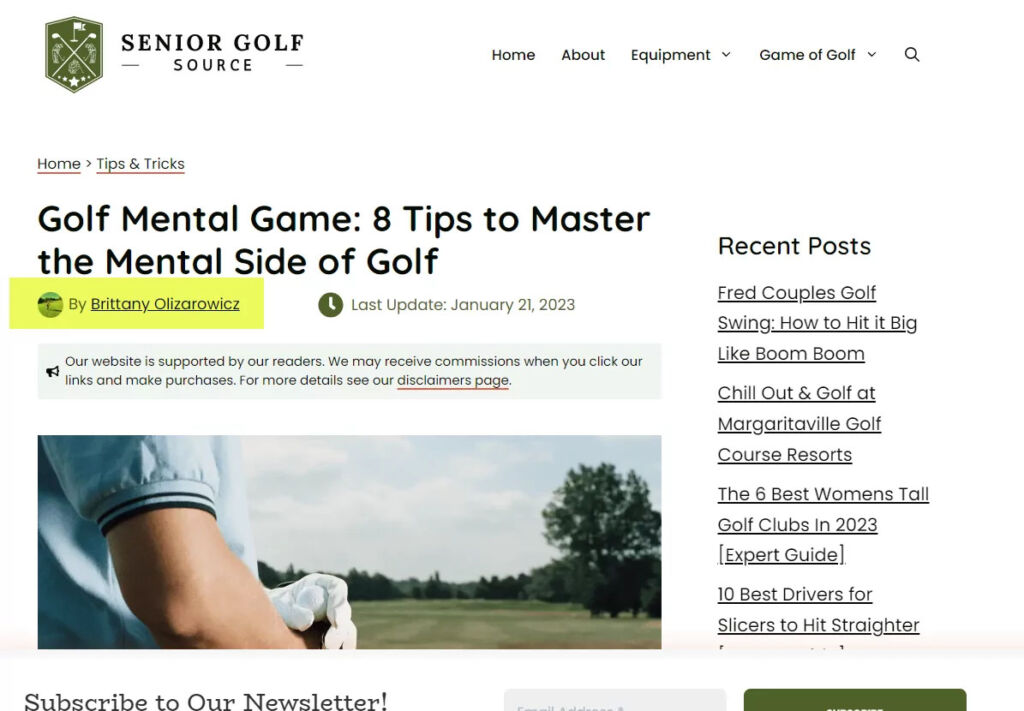
Auditing Legitimacy By Researching Author
Before reading the article, I wanted to ensure the author was a legitimate golfer, so I clicked to learn more about Brittany Olizarowicz. What stood out to me was the following:
- She’s a Class A PGA Professional.
- She has nearly 30 years of golf experience.
- She’s still a scratch golfer.
- She’s writing for an authoritative, legitimate website.
If I hadn’t seen a credible author associated with the article, I would have never read it. Without strong E-E-A-T, many people will not trust the source, which provides a bad user experience. Google wants to avoid this at all costs, hence the strong emphasis on experience, expertise, authority, and trust.
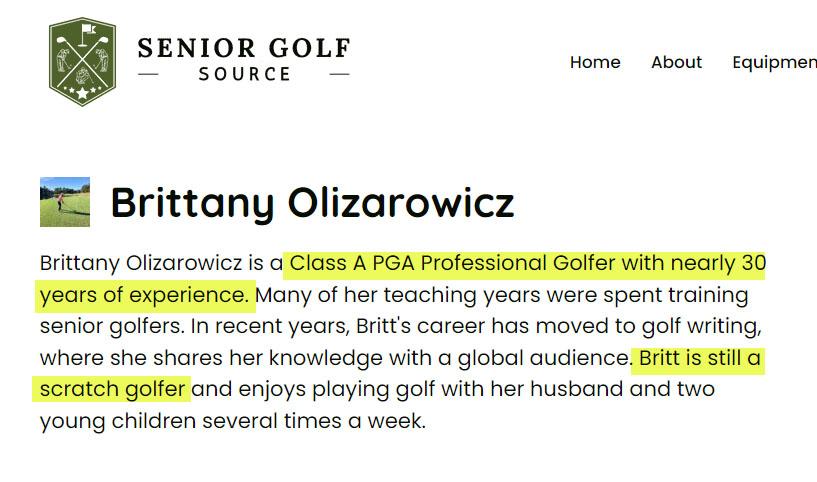
Rewarded For E-E-A-T
- It’s no coincidence Google is ranking “8 Tips to Master the Mental Side of Golf by Senior Golf Souce at the top of their search engine.
- The article is well-written by an expert and comes from an authoritative site.
- Senior Golf Source has done a great job solidifying E-E-A-T on its website, which is evident on its “About” page.
- Each of their writers has extensive professional golf experience.
- SGC (Senior Golf Source) does a great job highlighting their team on the About page.
Website Not Benefiting From E-E-A-T
Ship Sticks is a well-known golf brand that ships clubs nationwide for golf travelers. If you have a golf trip and don’t want to schlep your clubs, Ship Sticks will ship them for you.
ShipSticks has twice the authority score compared to Senior Golf Source (42 vs. 23). Theoretically, they should be outranking Senior Golf Source when creating blogs. Once you start analyzing E-E-A-T, why this isn’t happening is evident.
No Author
- No author is associated with their blog post “Mastering the Mental Game of Golf.”
- This is going to be a major turn-off for golfers who are serious about improving their game.
- When people land on this blog post, there is a strong likelihood they’ll bounce because they are looking for expertly written content, just like myself.
Content Quality Is Lacking
- The content on Ship Sticks blog about Mastering the Mental Game of Golf is relatively thin, with 697 words. When you compare Senior Golf Source’s blog on 8 Tips to Master the Mental Side of Golf, there are 1,528 words, more than twice the amount of content.
- It’s not just about word count. There needs to be valuable insights added to the article.
- Ship Sticks article doesn’t expand on personal experiences of how the author overcame their own mental hurdles to improve their golf game. On the other hand, Senior Golf Source added personal anecdotes (see below).
“There were two ways that I learned to manage my extreme golf nerves. The first is to breathe. When we get nervous, we often forget to take full deep breaths. You can calm a lot of nerves by just breathing in through the nose. The second was for me to think about the worst that could happen. It may sound funny, but I would say to myself things like, “If you hit a line drive or a slice off the first tee, you will simply recover on the next shot and par the hole.” I tried to downplay the nerves but also replaced them with positive thoughts.”
- It’s evident why Senior Golf Source is outranking Ship Sticks for this particular blog post:
- The layout and user experience is better.
- There is an author who showcases E-E-A-T.
- The website does a better job of showcasing E-E-A-T.
- The content is better as it’s more expansive and provides real-life anecdotes.
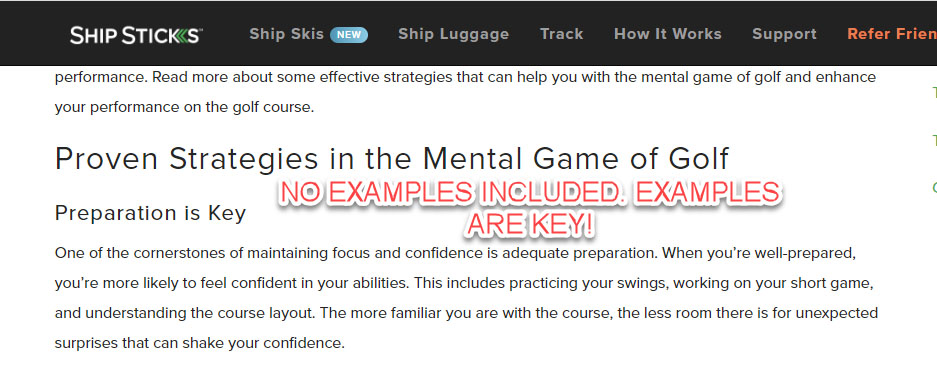
Checking All The E-E-A-T Boxes
Based on the prior example, you should better understand E-E-A-T and better conceptualize how a website can positively and negatively be impacted based on this.
Search Engine Land had an extensive article on E-E-A-T. I summarized what Google seeks regarding experience, expertise, authoritativeness, and trust. I then added an anecdote of how Senior Golf Source checked all E-E-A-T boxes.
- Think of lived experience – specifically, first-hand experiences on the topic you’re writing about. With all of the advancements in AI, experience is more important now than ever. AI can not demonstrate actual experiences of any kind.
- The author, Brittany Olizarowicz, has 30 years of golfing experience. She’s able to share examples and personal anecdotes based on this.
- Expertise relates to the extent of knowledge demonstrated within your article or by the writer.
- The fact that Brittany is a Class A PGA Professional gives her needed expertise on the subject matter.
- My dad has over 30 years of golf experience but is not a professional (sorry, dad). When reading an article on the mental side of golf, people would prefer to hear from a scratch golfer versus a weekend warrior.
- The fact that Brittany is a Class A PGA Professional gives her needed expertise on the subject matter.
- Authoritativeness considers the extent to which a content creator is known as a go-to source on the topic.
- A good rule of thumb to gauge someone’s authoritativeness is to do a Google search for their name and the topic. For Brittany Olizarowicz, I searched for her name + golf. She is a trusted source within the golfing world, evident based on the sites she’s contributing to and the different credentials displayed within the description.
- Later in this article, I will explain how to improve your authoritativeness.
- A good rule of thumb to gauge someone’s authoritativeness is to do a Google search for their name and the topic. For Brittany Olizarowicz, I searched for her name + golf. She is a trusted source within the golfing world, evident based on the sites she’s contributing to and the different credentials displayed within the description.
- Trust is developed by showcasing experience, expertise, and authority in aggregate.
- It’s not just about an individual being trustworthy but also the website. The two go hand in hand.
How To Improve Your Websites E-E-A-T
Previously, I included the E-E-A-T example from Senior Golf Source. As I go through the various ways to improve E-E-A-T, I will share examples from my business so you can better visualize this for your own site.
Include Authors & Strong Bios
Google’s Quality Rater Guidelines analyze whether a page on your site is high-quality or low-quality. One factor they consider for quality is the person writing the content. If Google feels the creator of the main content does not have adequate experience, your webpage can be viewed as low quality. This is something you want to avoid. Having an author associated with your content is recommended to establish strong E-E-A-T.
- Add authors to your website for blogs and articles.
- Your authors should be credible on the topics they are writing about.
- You may want to reconsider your content strategy if you don’t have experts writing the content.
- Your content and quality will improve if experts are providing valuable insights.
- Even if the expert doesn’t have time to write the entire content, interviewing them for quotes will add depth.
- Someone will trust the content more when it’s written by a real-life person demonstrating E-E-A-T.
- It’s not recommended to have a non-accountant write an article about tax planning
- It’s not recommended to have a non-golfer write about golfing tips.
- Find someone that’s trustworthy; it leads to a better overall experience.
- The author should have a strong bio so it’s evident why they showcase experience, expertise, authority, and trust.
- Within my bio, I talk about the awards our agency has won, so sources are linking back for validation.
- I discuss our work with hundreds of clients, showcasing our knowledge and insights to write about various marketing topics.
- I shared that we’ve been in business for 13 years, which shows we’re established and not a fly-by-night operation.
- In addition to the bio within each blog post, I have a full bio page so people can learn more about my credentials and background.
Not Including Authors
Many sites don’t include authors, and their content still ranks well. This isn’t something I recommend. I don’t want you to leave this article thinking that it has no chance of ranking well if you don’t have an author bio on your blogs or articles. If Ship Sticks had a more detailed article that provided more depth, it would rank better than number 50 on Google. I think Google will continue to favor the sites that showcase E-E-A-T, especially when we get into more content produced via AI.
Related Blog: Negative Impact of AI Written Content
Get Mentions On Authoritative Sites
Getting external mentions on authoritative sites is highly recommended to become a credible source. If other sites aren’t mentioning your site and your name, there’s a lack of credibility in Google’s eyes. Don’t worry; you can be proactive to get more authoritative mentions.
Nobody was eager to feature me on their website during the early days of owning my agency. I would reach out to industry-specific websites and pitch them to be a contributor. What got my foot in the door with many sites, including Entrepreneur.com, was that I could record corresponding videos along with each blog post. This was around the time media sites were investing in YouTube channels. This sort of outreach led to getting featured and mentioned on the following sites:
- I’ve written content for Entrepreneur.com and Ohio State University on SEO and digital marketing topics
- I’ve been quoted in Search Engine Roundtable on various SEO findings.
- I’ve been featured locally in the news for sharing my marketing expertise with the Columbus Dispatch and 10TV
Remember, making your pitch memorable when trying to get media references and authoritative contributions is important. HARO is a great starting place if you’re looking for media mentions.
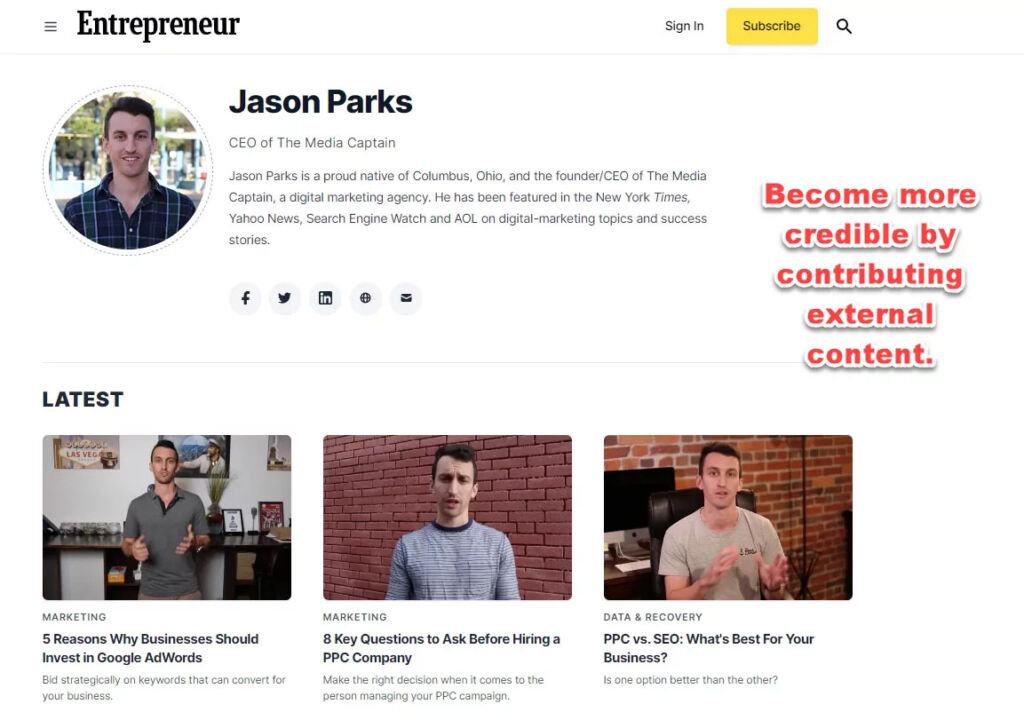
Focus On Making Your Website Great
- I advise you to put your name and face behind your website’s content, even if you don’t have external mentions on authoritative sites.
- I recommend creating a strong bio on your existing site to establish your credibility
- By doing this, when people search for your name on Google, this information will populate along with other articles you’ve written.
- Other sites often link back to your articles, which is a great way to acquire high-quality backlinks.
- Once you conduct outreach for article contributions and PR opportunities, you can share the great content from your own site, which shows how much of an expert you are!
Write Great Content
- Just because you are an authoritative figure doesn’t mean your content will be good.
- Despite Senior Golf Source having a much less authoritative website than Ship Sticks, they were able to outrank them due to the quality of the content being far superior.
- A well-respected author can still produce thin, non-valuable content, which is something Google doesn’t like.
- If you don’t have well-written content, this can lead to your website being penalized for thin content.
- Analyze other sites’ ranking towards the top of Google to see the type of content they produce.
- Use this as inspiration when creating your own unique content.
- Don’t just copy competitors. Your experts should add personal anecdotes within each piece of content.
In Closing
- Google wants to see your website possess strong E-E-A-T.
- If you follow Google’s guidelines, you should reap the benefits and see your content improve in rank.
- It takes time to build your authority.
- External references are extremely important
- Creating great content is equally valuable.
Hopefully, you found the examples and information within this blog helpful. You can contact The Media Captain if you have any questions on E-E-A-T.


